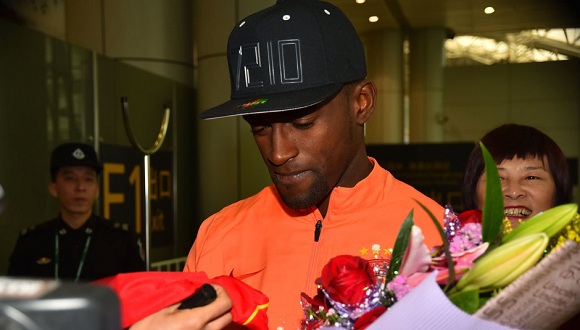With a list of domestic commercial giants swarming into the Chinese market, rising interest in soccer has dramatically changed the economic landscape of the Chinese Super League (CSL) over the last few years.
In the late 1990s, the CSL was closely linked with tobacco manufacturers and four clubs were financed by local cigarette brands. When the 21st century approached, real estate companies began to replace tobacco brands to take a dominant position in financially supporting China’s professional soccer league. At that time over 80% of CSL clubs were bound closely to property entities. It was not until July 2014 when China’s biggest e-commerce giant, the Alibaba Group, bought a stake of Guangzhou Evergrande FC, that CSL club ownership became an option for rich internet company owners.
With the growing Chinese soccer craze, the CSL has garnered unprecedented attention from investors, more than has ever seen before. In turn, the successful case of Evergrande and Alibaba Group in building a club has left a massive impact on the attitude of investors towards the CSL.
Economically, it became a different league. Few would expect a CSL club to be able to afford the CSL record €42 million deal to bring Atletico Madrid’s Jackson Martinez to Guangzhou Evergrandel. Only days earlier, Jiangsu Suning also offered €28 million to land Ramires from Chelsea FC. Even the newly promoted CSL club Hebei China Fortune also brought Gervinho from Roma for €15 million before the transfer window drew to a close. Guangzhou, alongside other clubs, are clearly eyeing bigger names to strengthen their squad for the upcoming CSL season.
Despite the continuous successes, Guangzhou are not be alone on this journey with the likes of Shanghai SIPG, Shandong Luneng and Beijing Guoan not far behind. The above clubs were all in search of proven quality, including coaches and players, to upgrade their teams. In addition to these clubs, Jiangsu Suning, formerly Jiangsu Guoxin Sainty, had a busier preseason. The club, which was acquired by China’s ecommerce platform Suning from Guoxin Sainty last December, have shown their ambition to impress in the new season by landing Chelsea’s Ramires.
Chinese internet company LeEco, which operates the Le Sports service joins forces with CSL side Beijing Guoan FC..
After acquiring Jiangsu Guoxin Sainty FC for RMB523 million, Suning Group’s President promised they would make great efforts to build the club into a top notch soccer club in the CSL and even in Asia. To achieve this objective, Suning will be responsible for everything which happens in the club, including the commercial operation, team building, fan culture and youth training.
Suning is not the only newcomer for the upcoming 2016 CSL season, Le Sports has come in and joined forces with Beijing Guoan. As a leading internet-based sports company and also a heavy spender in media rights , Le Sports has agreed a wide-ranging partnership with the Beijing-based club on team sponsorship as well as future development. In their high-profile press release, Beijing Guoan almost simultaneously announced the co-operation with Le Sports and the introduction of the renowned manager Zaccheroni and several new players. Despite clarification that Le Sports hasn’t bought a stake in Beijing Guoan, the co-operative plan for the club’s youth training and future development suggests that Le Sports may possibly play a more significant future role in the club.
For the above companies, the CSL is seemingly not only a soccer league but the most precious soccer property in China. To be merely authorized broadcasters, licensed sponsors or strategic partners is not of great interest. What they are looking for is a deeper involvement in clubs, so giving them a stronger voice. They want to build a few other Guangzhou Evergrandes in their own names. In this regard, buying a club and going through a successful transfer window or two are seemingly the most popular ways of entering the CSL at the moment. That well explains why Suning approached Jiangsu for all the club’s stake while Le Sports eyed half of Guoan’s shares from CITIC.
It is yet unknown whether the money-backed clubs can actually challenge Guangzhou’s leading position in the CSL. However, there would be predictably a much more competitive CSL campaign in the 2016 season with the introductions of Ramires and Gervinho and I will not be surprised if CSL clubs would see larger attendance in their homes in the upcoming season.
In pursuing their soccer dreams, the relevant companies have really boosted the soccer market with their big flow of investment. Despite the fact that most of the money will be used to bring in expensive players, a growing number of CSL clubs are now showing more interest in upgrading their own academies to create and foster new talent. No matter whether it is the Evergrande Football Academy or the yet-to-be-improved youth training systems of other CSL clubs, every change in Chinese soccer needs the right approach, the right people and particularly the right money.
As mentioned, the enthusiastic investors who wish to play a bigger
role in Chinese professional soccer can actually help develop the sport
in the country if they approach it in the proper way. In addition to the
introductions of proven star players who have rallied the CSL’s market
,these club owners and investors really need to think what role they can
take in drawing more Chinese kids to actually participate in this game.
Luckily, some of them, at least, are already building for the long term
and their passion to get involved in the CSL can shape the landscape of
the league – and soccer in China - for many years to come.
